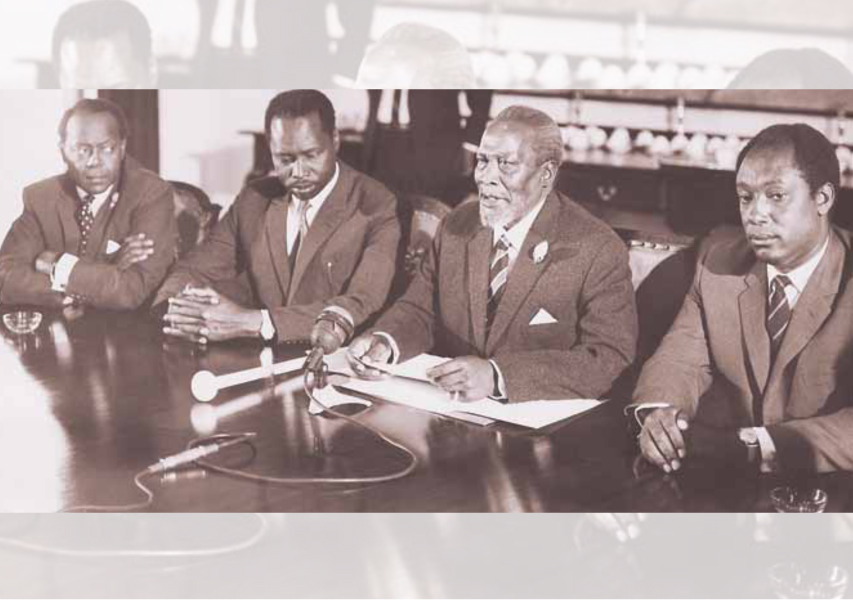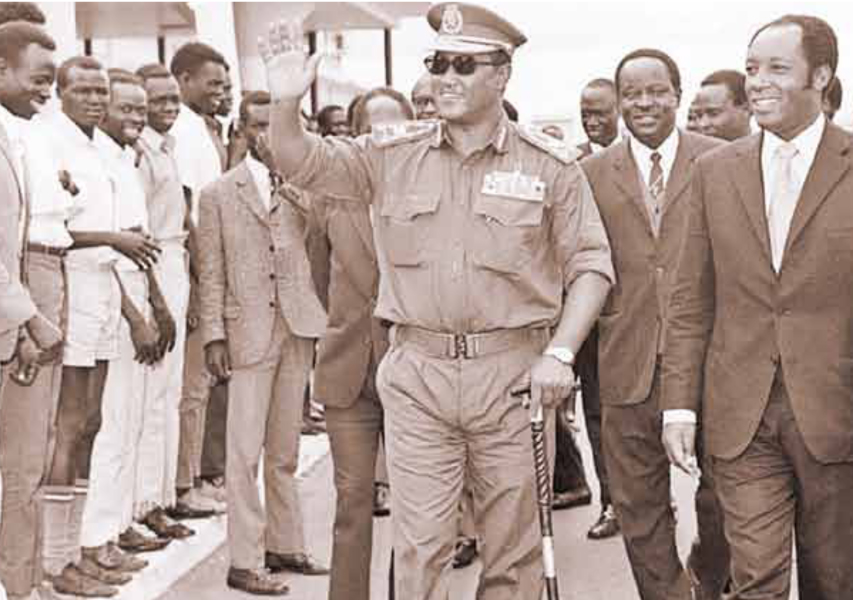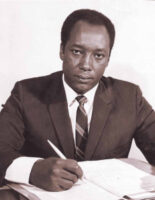
Apart from holding brief clerical jobs in the two years between leaving Alliance High School in 1945 and joining South Africa’s Fort Hare University in 1948, John Njoroge Mungai was a country bus driver, ferrying passengers between Limuru and Nairobi.
The later Defence Minister recalls: “I got my Public Service Vehicle (PSV) licence in 1946, a copy of which I still keep. I used to drive a 60-seater Chevrolet bus between Limuru and Nairobi via Kikuyu. Prior to that, I briefly worked for the British Overseas Airways Corporation.”
Mungai was born at Gichungo village along the border of Nairobi and Kiambu on January 7, 1926, to pioneer Christians George Njoroge Singeni ole Mbachucha and Leah Gathoni wa Kungu wa Magana. His father came from Narok and his mother from Gatundu. His family home was a breeding ground for politics and even before Mungai was born, the politics of the oppressor and the oppressed was played out in his neighbourhood. The home harboured both those who defended African rights and values, like Waiyaki wa Hinga, and “the servant of the colonial oppressors” like Paramount Chief Kinyanjui wa Gathirimu. “Being between the two opposing sides was interesting. Politics revolving around land, education and religion was the order of the day,” he says.
He recalls being told how John William Arthur, the colonial moderator of the Church of Scotland at Kikuyu, had tried to force the locals to abandon their customs and culture and follow his own.
“Of course, there was resistance from those who did not see the conflict between Christianity, education, modern living and their customs and culture,” says Mungai. “Although some customs may not have been appropriate, Arthur’s approach resulted in conflict and the split of the local people and church followers.”
A splinter group, led by Gatungu Gathuna, broke ranks religiously and started independent schools known as Gikuyu Karing’a.

Recalls Mungai: “This system of education later became the breeding ground for freedom fighters. Those who broke away from the Church of Scotland became agitators for the land that had been taken away by the colonialists and for self-determination and independence,” recalls Mungai.
One reason that may have informed Mungai’s choice of career later in life could have been the fact that he was born at a hospital at a time when, for Africans, giving birth at home came naturally and a hospital birth was almost unheard of. He explains the novelty: “My mother was among the first women to go to school and learn how to read and write. She and my father were members of the Church of Torch, Kikuyu, where the records of my birth were preserved. The records are still intact at the Church and they show that my birth attendant was one Dr John William Arthur.”
His parents were staunch Christians and Mungai was baptised the same year he was born and at the Church of Torch.
